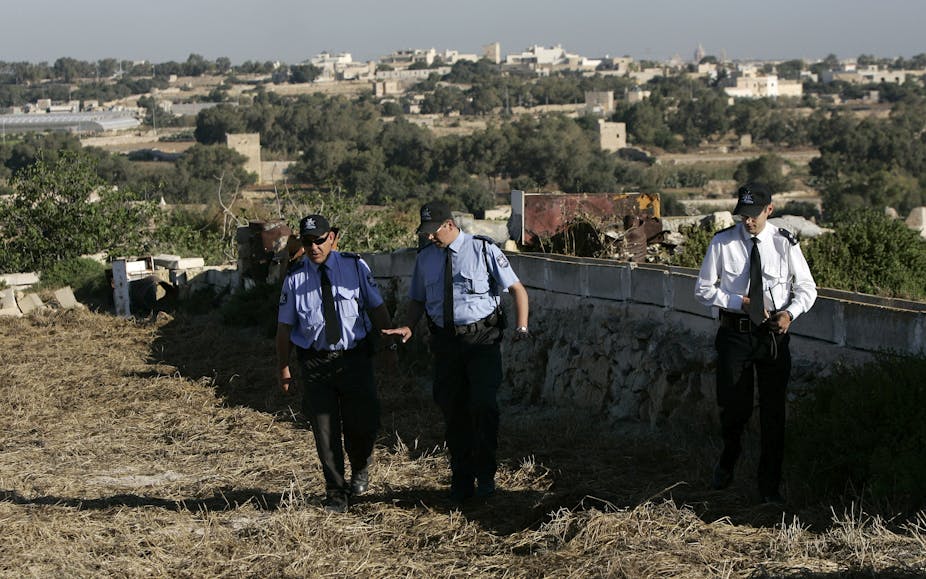As the world’s tigers, elephants, rhinos and pangolins continue to be poached, smuggled and sold, wildlife conservationists have declared war on wildlife trafficking and illegal hunting. These “wildlife wars” have received wide media coverage and led to an exceptional increase in enforcement through, for example, the use of drones for surveillance.
Military metaphors are powerful because they offer a way to explain abstract ideas about species conservation. Conservation is cast as a kind of war, something most people are more familiar with, if only through television. This comparison makes it easier to show how vital it is for donors and decision makers to support these issues. It is thus not surprising that military comparisons are now used not only to talk about topics such as wildlife poaching and invasive species, but also when discussing conservation in general.

However, using military metaphors has a price. They often don’t clearly describe what conservationists do. War metaphors change the story conservationists are telling and sometimes make complex issues seem too simple. We studied bird hunting on the small Mediterranean island of Malta – a case that shows the problems with military metaphors in conservation.
Military talk
Like many Mediterranean countries, Malta receives birds in spring when they fly north to breed in Europe and again in autumn when they travel back to Africa for the winter. However, Malta has a strong hunting tradition and the highest density of hunters in Europe. This has created many challenges to sustainable hunting and led to repeated violations of Maltese and European Union law.

So NGOs such as Birdlife Malta and the Committee Against Bird Slaughter have set up strict monitoring “operations”. They now “deploy” drones and “recruit” international volunteers, who are trained to “patrol” and “survey” the Maltese countryside. Volunteers also “escort” rare birds when they visit Malta, “guard” nature reserves and help police “ambush” poachers.
Hunters have reacted by not allowing anyone into their hunting grounds. It is now common for the two sides to insult each other, and the confrontation sometimes gets physical.
These NGOs regularly use war metaphors to talk about what is happening in Malta. This is reflected in operations with titles such as “Black Stork Down” and “Operation Darth Wader.” In these, birds are commonly described as innocent victims, “massacred” by “blood-crazed” hunters.

It can be difficult for NGOs to demonstrate to their supporters that they’re helping the long-term survival of a species, which is an abstract concept. However, brave activists fighting to stop the killing of innocent animals by violent hunters is something most people can easily understand.
From animal conservation to animal welfare
The problem is that describing migratory birds in this way has important effects. If we are trying to determine the effects of hunting on a species or on a population, then our job is to find out which species and how many birds can be hunted.
But if an NGO’s focus is on the welfare of the individual bird and how all life is valuable and must be protected, then their job becomes stopping all hunting as soon as possible. Even the death of one bird is a problem. Using military metaphors emphasizes this blanket approach. Hunters will obviously not agree to this a complete end to their activities and there is no room for compromise.
In other words, by using war metaphors, NGOs stop talking about animal conservation, which focuses on animal populations and species, and start doing animal welfare, which focuses on the individual animal. The two are very different. This can explain why in Malta the two sides cannot reach an agreement, despite sharing a core common goal: to make sure that Malta’s birds do not disappear.
It’s not a battle, but a journey
War metaphors are useful, but NGOs need to find better ways to generate support without losing sight of their aims. At the very least, they need to bear in mind how their language can affect their message, and realize that the metaphors they use are making them more confrontational.
Conservationists long ago learned that the long-term survival of species depends on delicate agreements reached through difficult negotiations with stakeholders. Getting this wrong creates resistance that is hard and costly to deal with. Conservation and conversation go hand-in-hand. Describing the other side as the enemy leaves no room for conversation.
NGOs should try to find different metaphors. For example, the language of navigation takes NGOs’ attention away from the images of killers and victims. Instead, one can see conservation as a journey. Using this metaphor, the language of conservation includes skillful navigation that explores new opportunities, charts charts achievable landmarks and avoids the hazards that leave projects in the doldrums, immobile and stagnant.
Such ideas allow the Maltese hunting scenario to be more clearly described without taking away the chance to discuss conflicts and agree on solutions. This is what conservation is all about.

